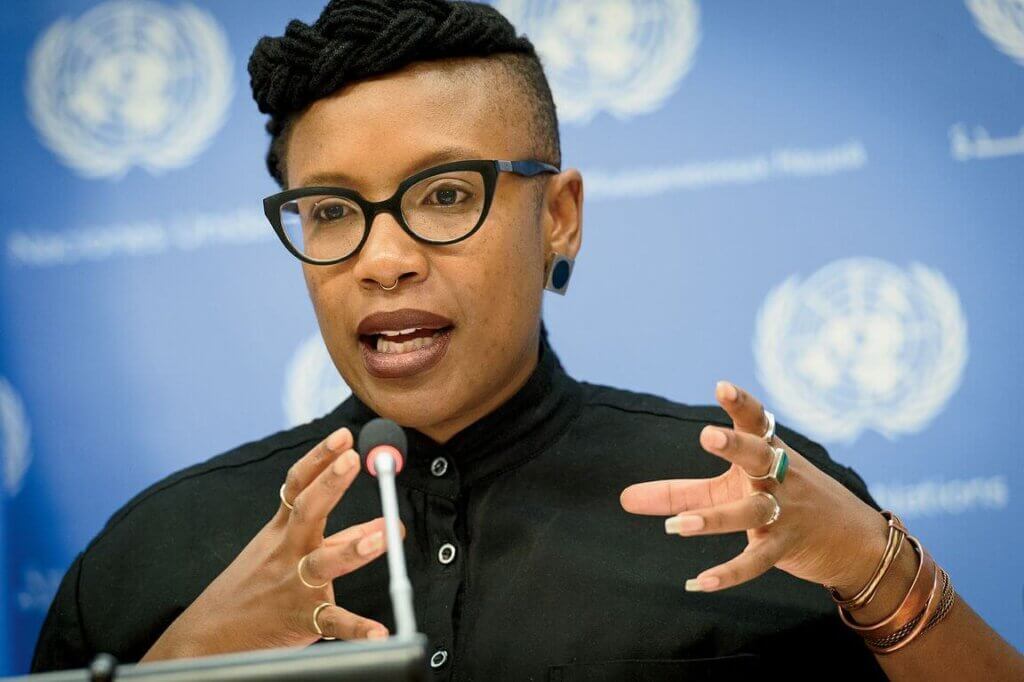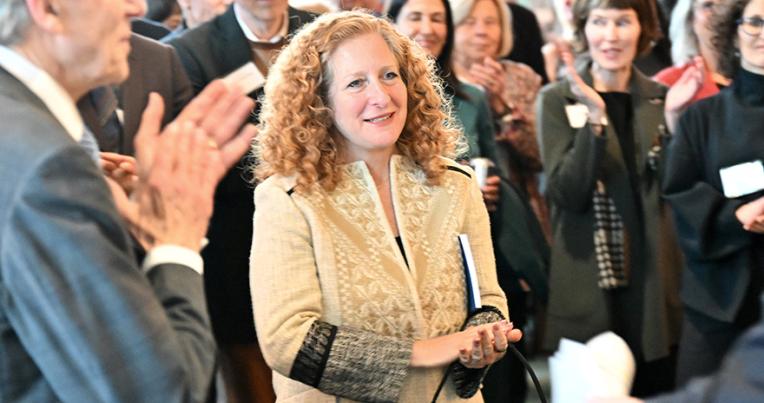From UCLA to the UN: Achiume Amps Up Human Rights Advocacy in Troubling Times
UCLA Law Magazine | Fall 2020 | Volume 43

Any given year finds UCLA Law Professor E. Tendayi Achiume, a leading authority in global human rights, traveling the world, engaged in a robust slate of speeches and presentations at the highest levels. But in this year beset by the coronavirus pandemic and mass protests over systemic racism that started in the United States and spread around the world, her calendar was more packed than ever.
An affiliated faculty member of the Promise Institute for Human Rights at UCLA Law, Achiume has since 2017 served as the United Nations’ Special Rapporteur on Contemporary Forms of Racism, Racial Discrimination, Xenophobia and Related Intolerance. She is the first woman to hold that position, and her students often provide key input or join her on her frequent travels to observe situations of severe injustice and draft reports on inequality, hate speech and other matters of grave concern. (In 2020, she also won the UCLA Distinguished Teaching Award, the university’s highest honor for excellence in the classroom.)
As protests and tensions grew during the spring and summer of 2020, Achiume was a frequent participant in media interviews and other outreach efforts, including articles in Just Security, whose editorial board she joined in June, and appearances in webinars including the July 14 UCLA Law event “Racial Inequality and Policing: What’s the Law Got to Do With It?” UCLA Magazine also published an incisive interview with Achiume in September.
But her most impactful work came at the U.N. where, after the killings of George Floyd and many others, Achiume led 65 other human rights experts in issuing a June 5 statement that called on the U.S. government to take decisive action on systemic racism. The experts drew parallels between the recent killings of African Americans and historical lynchings in the U.S.
Later that month, she called for and joined an Urgent Debate at the U.N. Human Rights Council, alongside Floyd’s brother Philonise, successfully asking for the creation of a commission of inquiry to examine police brutality in the U.S. The commission, whose mandate centers on police racism and brutality in the U.S. but extends globally, will report findings next year.
Then, on July 15, Achiume presented a startling report on how racial inequality is entrenched by emerging digital technologies. “Technology is not neutral or objective,” she told the Human Rights Council. “It is fundamentally shaped by the racial, ethnic, gender and other inequalities prevalent in society, and typically makes these inequalities worse.”
She further placed the report in the context of the moment. “The deaths of George Floyd and countless others have prompted a transnational uprising against systemic racism in law enforcement,” she said. “Part of the human rights response must include greater scrutiny of how the design and use of digital technologies is further entrenching this systemic racism.”
